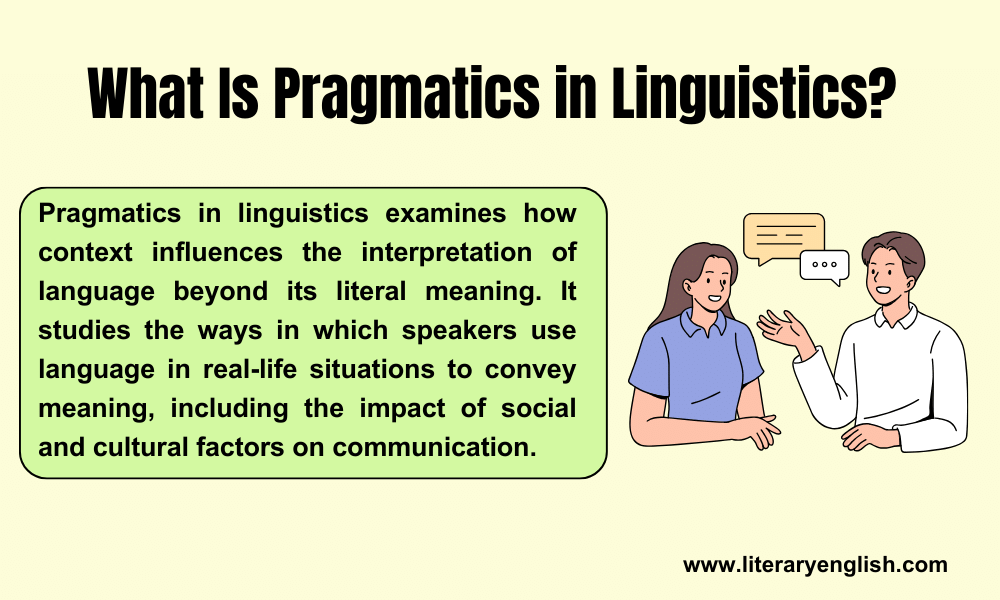What is Pragmatics?
Pragmatics is a branch or field of linguistics, which focuses on relations between languages and their users. In linguistics and philosophy, it focuses on what a speaker implies and how a listener infers. It contrasts with semantics, which focuses on the study of literal meanings of linguistic signs.
Pragmatics is then the study of how different aspects of linguistic meaning are determined by various principles that refer to the physical or social context in which language is used. In simple words, pragmatics is the study of language that is not directly spoken but the speaker hints a meaning, and the listener assumes the correct intention that what a speaker want to say.
“Pragmatics is concerned with meaning in context.” (Chapman, 2011)
“It is the study of invisible meaning, or how we recognize what is meant even when it isn‘t actually said or written.” (Yule, 2010)
What Does Pragmatics Study?
In linguistics, sometime one discipline is interlinked with another field within linguistics or is spread across a number of fields. As semantics covers a range of different levels like grammar, syntax and lexicon. In the same way, pragmatics covers different subgroups like pragmalinguistics sociopragmatics and, applied pragmatics. Pragmatics also interfaces with intradisciplinary branches like semantics and sociolinguistics.
Types of Pragmatics
According to Chapman (2005:11), Pragmatics is divided into theoretical pragmatics and social pragmatics. Theoretical pragmatics concentrates on the analysis of particular aspects of meaning and how these might be explained within more general formal accounts of language use. It has a connection with applied linguistics. Social pragmatics studies relationship between language use and different sociocultural factors. In one word, we can describe it as sociopragmatics.
Difference between Pragmatics and Semantics
Both, pragmatics and semantics are intradisciplinary branches of linguistics that study language. Semantics concerns the relations between signs and the objects they signify. It refers to the literal meaning of a language, while Pragmatics does not focus on literal meanings of a language, but how users interpret their utterances in a specific social context.
In simple words, semantics is the study of literal meaning in language that can be applied to a single word or entire texts. On the other hand, Pragmatics generally concerns with the use of language in social contexts and the ways user produce and comprehend
